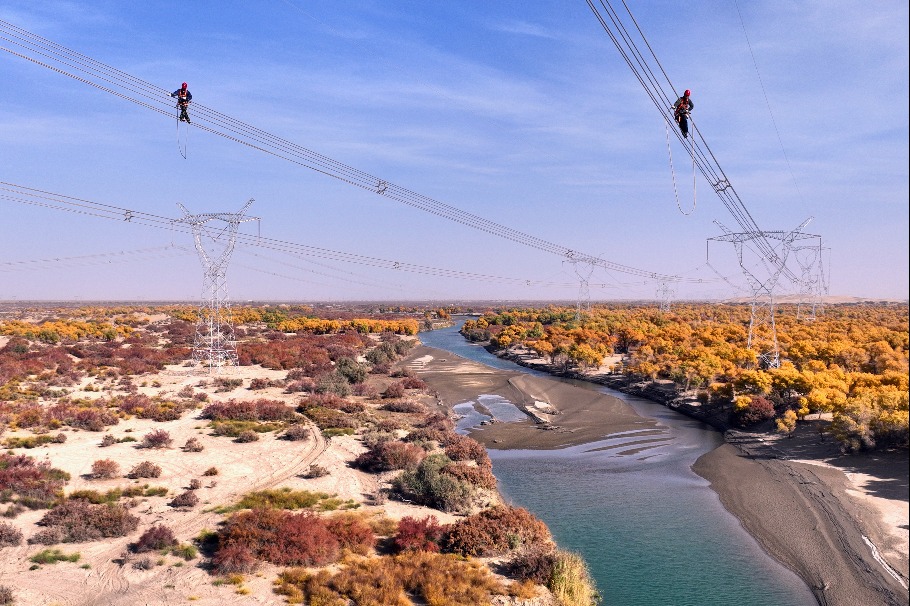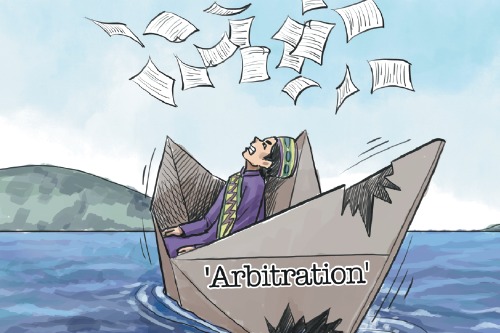Cross-Strait tourism a win-win vision


As the newly-elected leader Lai Ching-te prepares to "take office" on Monday, the Taiwan authorities should seize the opportunity to thaw cross-Strait relations, starting with the tourism sector.
The sign of a possible change was evident in the mainland tourism authorities' announcement that residents of Fujian province on the Chinese mainland could again travel to Matsu in Taiwan.
But despite the above initiative being driven by the opposition Kuomintang party on the island, the thawing of cross-Strait relations hinges on the ruling Democratic Progressive Party's willingness to reciprocate the goodwill shown by the mainland and agree with Kuomintang.
Beijing will not only allow Fujian residents to travel to Matsu in Taiwan but also further relax travel restrictions, allowing tour groups from Fujian to visit Taiwan contingent upon the resumption of direct sea transport between Fujian's Pingtan county and Taiwan. This gesture from the mainland signifies goodwill, and its further progress hinges on the response from the Taiwan authorities.
However, the Taiwan island's "mainland affairs council" dismissed the move, claiming it does not meet the principle of equivalent openness. Historically, the opening of cross-Strait travel has neither been instantaneous nor conducted on the basis of strict reciprocity, especially because of the vast population disparity between the two sides of the Strait — Fujian alone has nearly 40 million people, almost double that of Taiwan. For example, if Beijing allowed all mainland residents to visit the island, could Taiwan handle the influx?
The mainland has said the resumption of the Pingtan-Taiwan maritime route is a prerequisite for further easing of travel restrictions, indicating it has a phased plan for the resumption of cross-Strait tourism. This careful planning not only aligns with the top Chinese leader's desire to encourage mainland residents to visit Taiwan, and the comments of Song Tao, head of Taiwan Affairs Office, but also reflects astute planning to minimize the political risk should Taiwan reject these overtures.
While progress may seem slight, these steps are crucial to resume cross-Strait travel after the cessation of travel due to the COVID-19 pandemic. But the deadlock over resuming talks on cross-Strait travel hinges on the DPP lifting the ban on group travel and abandoning its absolute reciprocity term.
Despite the lack of trust between the authorities on both sides, shared intentions and gradual steps can foster goodwill over time, potentially breaking the current stalemate. With Lai taking office, there is hope that cross-Strait travel would be normalized, not least because both sides seem interested in expanding people-to-people exchanges. But certain steps should be taken to make that possible.
First, the two sides of the Strait should establish communication channels at multiple levels. Since cross-Strait tourism has come to a halt because of the lack of trust between the two sides of the Strait, the DPP should heed the advice of the island's tourism industry and lift the unreasonable ban on group tours to the mainland as a gesture of goodwill.
Further arrangements can be made through platforms such as the island's "Taiwan Strait Tourism Association", the mainland's Association for Tourism Exchange across the Taiwan Strait and other civil channels to build effective communication models in Kinmen in Taiwan or Xiamen in Fujian.
Second, the Taiwan authorities should improve the island's tourism sites, public facilities and transportation services. During extensive cross-Strait exchanges in the past, the influx of mainland tourists boosted Taiwan's tourism industry. Yet some subpar low-cost tours prevented tourists from fully enjoying the tourist sites and experiencing the local culture. So the island authorities should collaborate with the private sector to prioritize quality over quantity in the tourism sector so that people pay repeated visits to the island to enjoy the travel experience.
Third, the island authorities should reciprocate the goodwill shown by the mainland. To welcome mainland tourists, Taiwan should ease the requirements for mainland residents to travel to the island. Also, considering the keen interest of the residents of Kinmen, Matsu and Penghu in Taiwan to resume cross-Strait trade, shipping and postal services, a positive response from the mainland could lay the groundwork for resuming full cross-Strait exchanges.
The mainland has already extended an olive branch, and the DPP's response is eagerly awaited. It is hoped that the Lai authorities will not let go of this opportunity to use tourism to ease the tensions across the Strait. If Taiwan lifts the ban on travel to the mainland, the latter might respond positively, leading to a resurgence of mainland visitors to Taiwan.
Ideally, if the mainland takes a "small step" by opening its doors to tourists from Taiwan, the island should respond by taking a similar "small step". That would allow cross-Strait relations to be influenced by a spirit of mutual understanding and goodwill. Hopefully, Lai could release some signal that can help foster exchanges and build trust between the two sides of the Strait, which would evoke even greater goodwill gestures from the mainland.
"Step-by-step" progress is an ideal way of resuming cross-Strait exchanges amid a lack of mutual trust and facilitating low-risk interactions, which would gradually foster mutual trust and understanding, thereby laying the groundwork for more significant, expanded interactions.
The author is a professor of cross-Strait relations and international relations at Fu Jen Catholic University in Taiwan. The views don't necessarily reflect those of China Daily.
If you have a specific expertise, or would like to share your thought about our stories, then send us your writings at opinion@chinadaily.com.cn, and comment@chinadaily.com.cn.


































